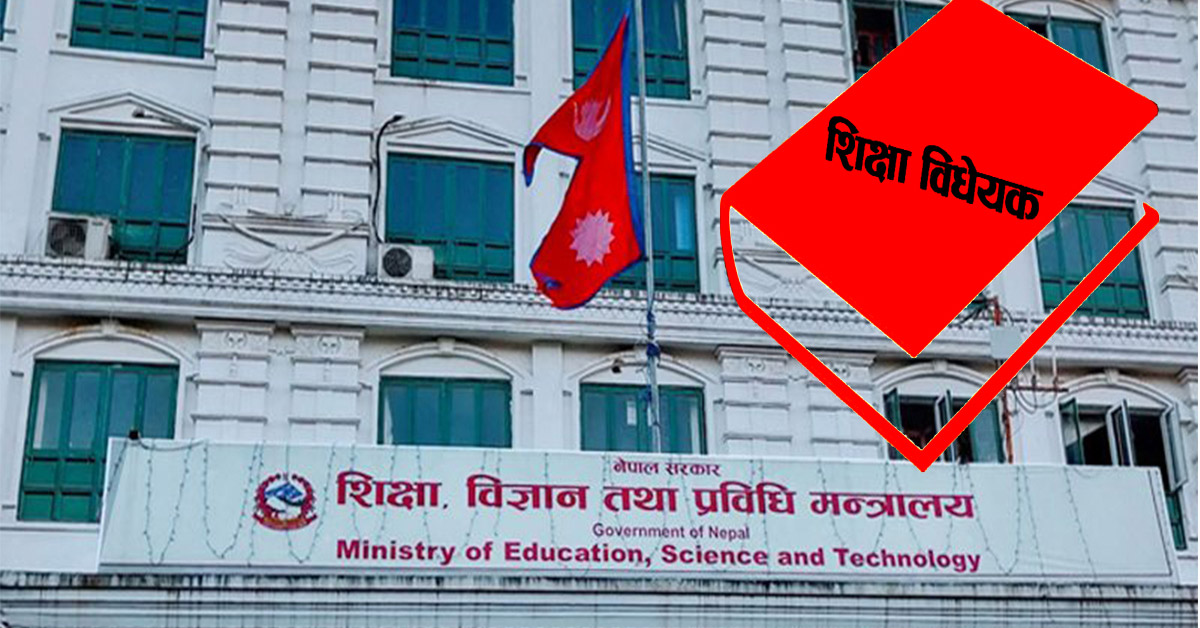
Private School Bill Passed with Scholarship Provision
The Education, Health, and Information Technology Committee of Parliament has passed the School Education Bill on Thursday. The bill includes provisions requiring private schools to provide scholarships with residential facilities for three percent of students and gradually transform private schools into non-profit institutions.
According to committee member Sumana Shrestha, the bill was passed by majority vote. Since there was no consensus among members regarding facilities for Early Childhood Development (ECD) teachers and scholarships with residential services to be provided by private schools, the bill was decided by majority.
The bill requires private schools with 500 students to provide scholarships to 10 percent of students, schools with 800 students to provide scholarships to 12 percent of students, and schools with more than 800 students to provide scholarships to 15 percent of students. Of the total scholarships, 50 percent must go to poor students and 50 percent to meritorious students.
The bill also includes provisions for 60 percent of teacher recruitment to be done internally and 40 percent through open competition. This arrangement was introduced to address the status of temporary teachers, including those working on contracts, relief quotas, former higher secondary schools, technical schools, and special categories.
An Educational Quality Authority will be established to monitor the academic quality of school education, study student learning achievements, and publish reports.
The bill has also created a new provision for establishing sanctioned positions for school principals. According to Member of Parliament Shrestha, the bill allows individuals who have studied any subject to obtain a teaching license.
She added, “If temporary teachers fail the permanent recruitment examination, the bill provides for their retirement with benefits.”
The bill also allows the government to operate two years of Early Childhood Development (ECD) education in public schools from the date set by the Government of Nepal, subject to available resources. It explicitly states that no school shall operate ECD education for more than two years. After the implementation of this Act, a facilitator must have at least completed Grade 12 or its equivalent to be appointed as an ECD facilitator.
Two years of ECD education will be mandatory before admission into Grade 1. The bill defines education from ECD to Grade 8 as basic education and Grades 9 to 12 as secondary education. Schools will provide education in two streams: general and technical.
Former Education Minister and Rastriya Swatantra Party Member of Parliament Shrestha stated, “Our party’s stance is that private schools must provide a full 10 percent scholarship. However, the committee, by majority, passed the bill with the provision brought by Education Minister Raghuji Pant to provide 2.5 percent scholarships, increasing it slightly by 0.5 percent.” She expressed her differing opinion on making private schools non-profit and on the scholarship provision.
She further stated that the CPN (Maoist Centre) and Rastriya Swatantra Party opposed the provisions, insisting that private schools must provide a full 10 percent scholarship and that ECD facilitators should be recognized as teachers.
The Constitution of Nepal guarantees compulsory and free education at the basic level and progressively free education at the secondary level. Private schools, however, have opposed the non-profit provision and scholarship requirements.
Key Highlights of the School Education Bill
-
Private schools must provide scholarships: 10% (for 500 students), 12% (for 800 students), and 15% (for more than 800 students).
-
Scholarships must be divided equally: 50% for poor students and 50% for meritorious students.
-
Teacher recruitment: 60% internal, 40% through open competition; new provision for principal positions.
-
Early Childhood Development (ECD): Two years mandatory before Grade 1, with facilitators requiring at least a Grade 12 qualification.


